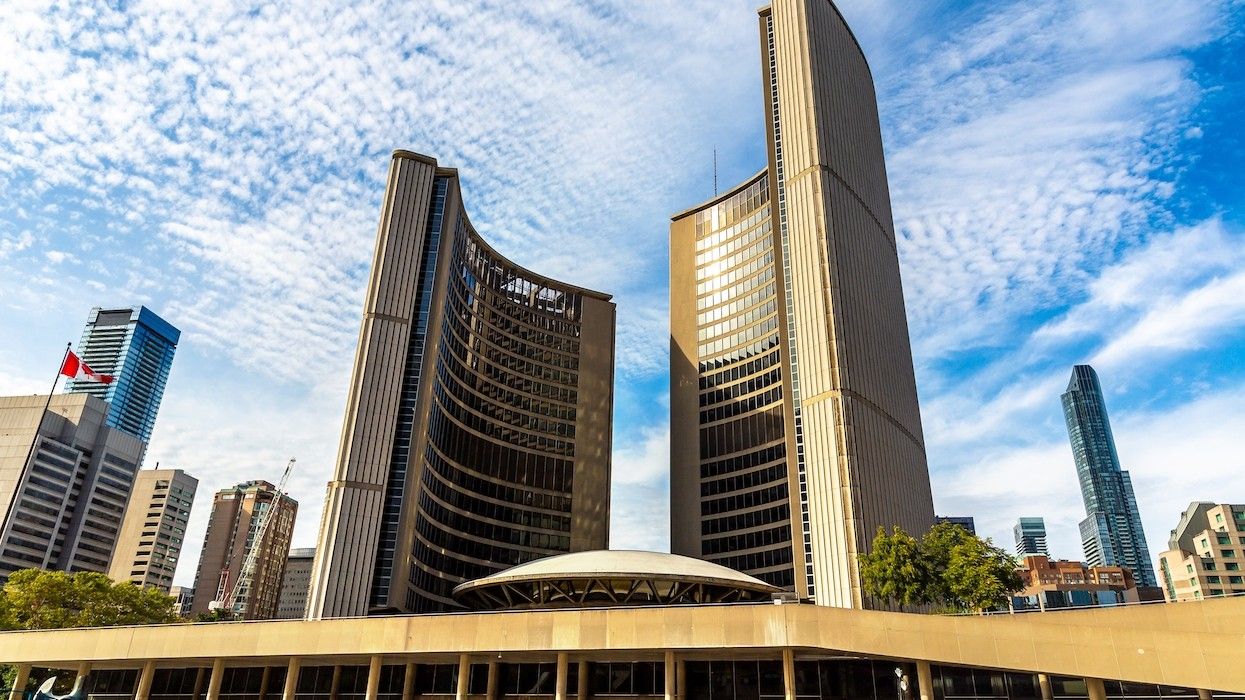This article was written and submitted by Liam Gill, lawyer, tech entrepreneur, and the writer of The Middle Ground.
As the Toronto City Council prepares to vote on legalizing sixplexes city-wide this week, a roadblock remains that could prevent sixplexes from ever being built: development charges (DCs), which are the fees the city imposes on new housing.
Toronto currently has a DC waiver for multiplexes with four units or fewer, but there’s a catch: as soon as someone wants to build a fifth unit, the waiver disappears, and DCs apply to all the units. That creates a bizarre incentive to stop at four units even when there is space and demand for more. That is why at the last meeting of the Housing and Planning Committee, I proposed extending the DC waiver to the first six to ten units of every development.
In response, Councillor Stephen Holyday asked me, “Why on earth would I cut development fees so that a doctor or a lawyer with $600,000 or $700,000 lying around can make more money?” It’s a revealing question that highlights a fundamental issue; at a time when Jagmeet Singh, Pierre Polievre, and Mark Carney all agreed DCs negatively impact housing affordability, City Council remains fixated on the optics of the policy, not its impacts.
If we’re serious about tackling housing affordability, we need to have an honest conversation about how DCs are killing projects, reducing the supply of housing and driving up rents.
According to the City, a two-bedroom affordable unit should cost $281,695, however, the DCs alone for that unit are a whopping $80,690. That’s more than 28% of the total cost. Add in parkland fees, community benefits, and taxes — there’s no way a developer can make the numbers work.
I recently explored the possibility of converting a lot currently occupied by a single-family home into a 10-unit purpose-built rental building. The costs would have totalled $3.15 million, with the finished building worth roughly $3.5 million. This should have been a slam dunk, creating nine new housing units at a profit. Instead, the $423,489 in DCs levied by the City made the project financially unfeasible.
Even when developers do build, DCs are passed on to renters through higher rents. The $50,248 in DCs for a two-unit rental apartment means an additional $280 per month in mortgage payments for the developer. This equates to an extra $3,360 per year in rent.
The most concerning aspect of DCs is their increase over the last 15 years. In 2010, DCs for a one-bedroom condo were $4,985, but today, they are $54,801, a 1100% increase. If property taxes increased at the same rate, a one-bedroom condo would owe $23,932 per year. If food prices increased at that rate, a Big Mac would cost $46, and a small Tim Hortons coffee would be $16.50.
City Council argues that DCs are necessary to fund services for these new developments. In reality, however, most of the money isn’t being spent. In 2007, the City had $172 million in its development charge reserve. By 2023, that figure ballooned to $3.1 billion. That is billions of dollars worth of taxes on new housing sitting untouched while young people are priced out of the city.
Councillor Holyday framed the issue as protecting the city from wealthy professionals seeking profit, but that misses the point. Those professionals have been buying and renting housing for decades, making a substantial profit. We need to change the financial incentives so that it is more profitable for them to build apartments than buy them. This will increase supply and lower rents.
And Toronto has proved this works on a small scale. In 2022, the city waived DCs on buildings with four units or fewer. In 2023, it permitted the construction of four-unit multiplexes as of right. The result? An 800% increase in multiplex units. And those units rent for 35% less than the average condo — $2.93 per square foot versus $4.44.
To answer Councillor Holyday’s question, we should cut DCs on the first six to ten units of every development (or failing that, extend the current four-unit waiver to all developments), not to make rich people richer, but because it is the fastest and most efficient way to encourage more people to build housing. We are facing an unprecedented affordability crisis, and there is no logical justification for a tax that directly raises rents and home prices.





















